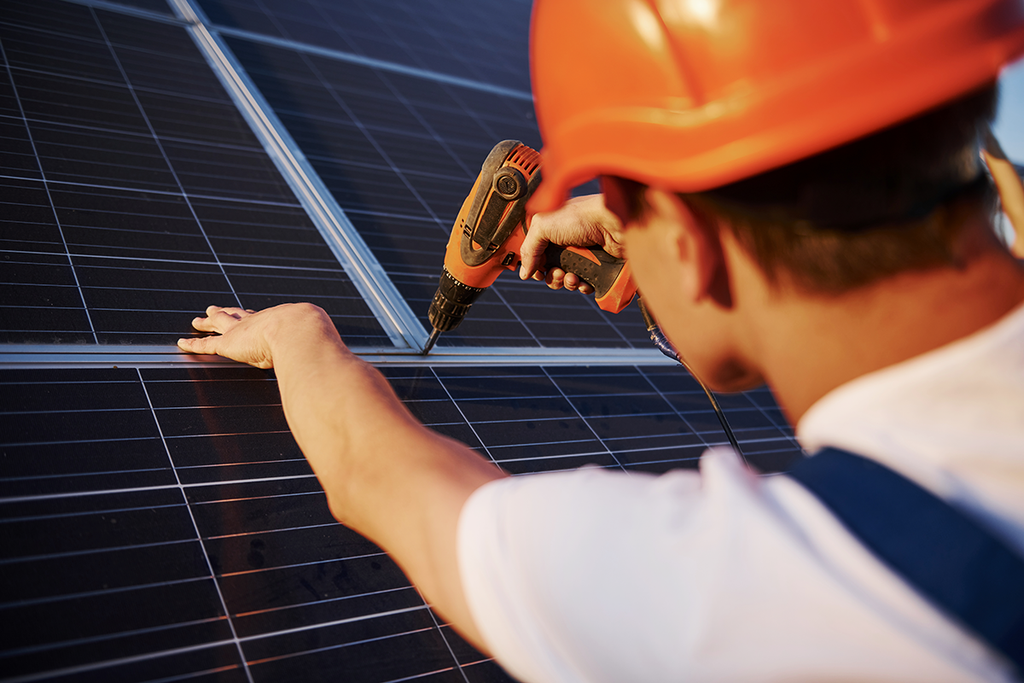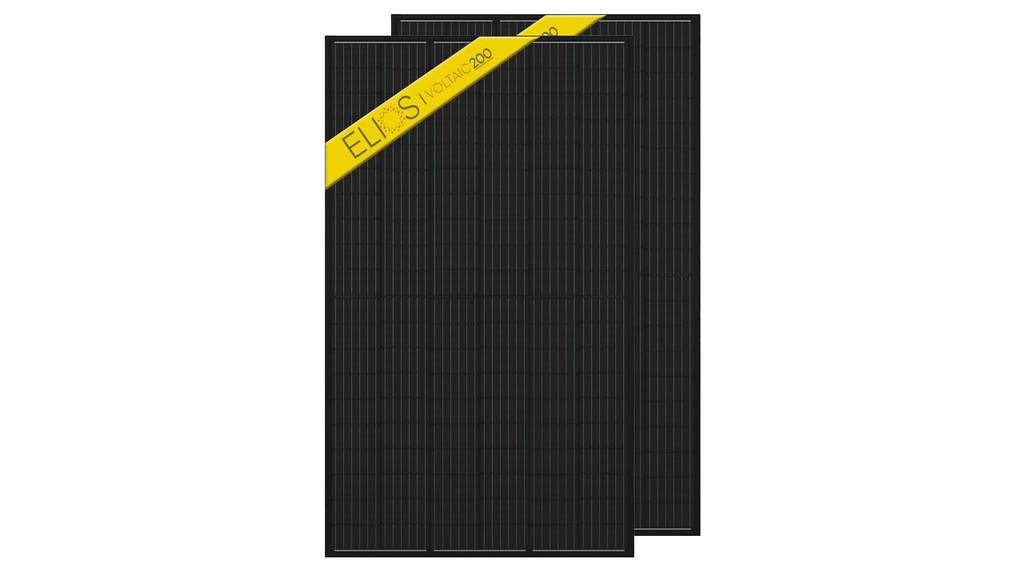Should Different Wattage Panels Be Mixed in a Parallel Setup?
Posted by Tina Kassaeian on

Renewable energy, particularly solar power, is increasingly recognized as a promising solution to address our escalating energy demands. With ongoing technological advancements, solar panels are becoming more efficient and cost-effective, rendering solar energy an appealing choice for both residential and commercial applications.
One question frequently raised in solar panel installations is whether panels with different wattages should be mixed in a parallel setup. In this blog, we'll delve into this topic to understand the feasibility and implications of combining panels of varying wattages in a parallel configuration.
Understanding Parallel Setup In Solar Panels Installation
In a parallel configuration, multiple solar panels are interconnected in such a manner that they are all linked to a single electrical circuit. Unlike a series connection where the current passes sequentially through each panel, in a parallel setup, the current flows independently through each panel.
This means that each panel contributes its generated electricity directly to the circuit, rather than having its output dependent on the performance of other panels in the array.
The advantage of this configuration lies in its ability to enhance overall power output. By allowing each panel to operate autonomously, a parallel setup maximizes the total energy production potential of the solar array.
Even if one panel experiences shading, dirt accumulation, or malfunction, the remaining panels continue to generate electricity at their full capacity, mitigating the impact of the issue on the system's overall performance.

Furthermore, a parallel configuration provides redundancy and resilience to the solar power system. In the event of a panel failure or malfunction, the rest of the panels remain operational, ensuring that the system continues to produce electricity.
This redundancy is particularly valuable in situations where uninterrupted power supply is critical, such as in off-grid installations or in regions prone to inclement weather conditions.
Overall, a parallel setup offers increased efficiency, reliability, and resilience compared to other configurations. By allowing each solar panel to function independently within the system, it maximizes energy production potential and minimizes the impact of individual panel issues on the overall performance of the solar power system.

The Risks of Mixing Solar Panels
While it's technically feasible to mix panels with different wattages in a parallel setup, it's important to recognize the potential risks and drawbacks associated with this approach. One of the primary concerns is the mismatch in voltage and current output among panels with varying specifications.
Voltage and Current Mismatch
Mixing panels with different wattages can result in voltage imbalances within the system, which may lead to suboptimal performance or even damage to the panels and other system components. Additionally, the mismatch in current output among panels can result in power loss and reduced overall efficiency.
Compromised Performance
Inconsistent performance among panels can compromise the reliability and effectiveness of the entire solar power system. Panels with lower wattages may act as bottlenecks, limiting the overall output of the system and diminishing the return on investment.

Warranty and Compatibility Issues
Furthermore, mixing panels from different manufacturers or with different specifications may void warranties and pose compatibility challenges. Manufacturers typically design solar panels to work optimally within a specific range of voltage and current ratings, and deviating from these specifications can introduce uncertainties and reliability issues.
Consultation and Professional Guidance
Given the complexities and risks involved, it's highly recommended to consult with a qualified solar installer or engineer before considering mixing panels in a parallel setup.
Volts Energies professionals can assess the specific requirements and constraints of your installation and provide expert guidance to ensure optimal performance and longevity of your solar power system.
Choosing Best Solar Panels in 2024
As we step into 2024, the demand for renewable energy solutions continues to surge, with solar power leading the charge towards a sustainable future. With an array of solar panel options available in the market, selecting the best panels for your specific needs can be a daunting task.
In this section, we'll explore two standout brands—Vsun Solar Panels and Elios Panels—each offering unique advantages tailored to different applications, whether for off-grid living or RV adventures.
Vsun Solar Panels: Empowering Off-Grid Living
For those seeking energy independence and sustainability in remote locations, Vsun Solar Panels emerge as a top choice. Renowned for their reliability and efficiency, Vsun panels are engineered to thrive in off-grid environments, where access to traditional power sources may be limited or nonexistent.
What sets Vsun Solar Panels apart is their robust construction and high-performance capabilities. Designed to withstand extreme weather conditions and harsh environments, Vsun panels deliver consistent power output, ensuring uninterrupted energy supply for off-grid homes, cabins, and remote installations.
With a range of wattages and configurations available, Vsun Solar Panels offer scalability and versatility, allowing homeowners to tailor their solar power systems to meet their specific energy needs. Whether powering essential appliances, lighting, or entire off-grid communities, Vsun panels provide a reliable and sustainable energy solution for off-grid living in 2024 and beyond.

Elios Panels: Unleashing Solar Power on the Road
For adventurers and nomads exploring the open road in recreational vehicles (RVs), Elios Panels offer the perfect combination of portability, efficiency, and durability. Designed with the unique needs of RV enthusiasts in mind, Elios panels are engineered to withstand the rigors of travel while maximizing energy capture from the sun.
Elios Panels are characterized by their compact and lightweight design, making them an ideal choice for rooftop installations on RVs. Despite their small footprint, Elios panels deliver impressive power output, allowing travelers to stay off-grid for extended periods without sacrificing modern comforts.

With easy installation and seamless integration into RV rooftops, Elios Panels provide travelers with the freedom to explore remote destinations while staying connected and powered up. Whether boondocking in the wilderness or embarking on cross-country road trips, Elios panels enable RV enthusiasts to embrace sustainable travel and adventure with confidence

Whether you're exploring the feasibility of solar for your home or seeking advice on system design and configuration, our team is committed to assisting you every step of the way. Don't hesitate to reach out to Volts Energies for personalized assistance and expert advice tailored to your specific needs and requirements.
